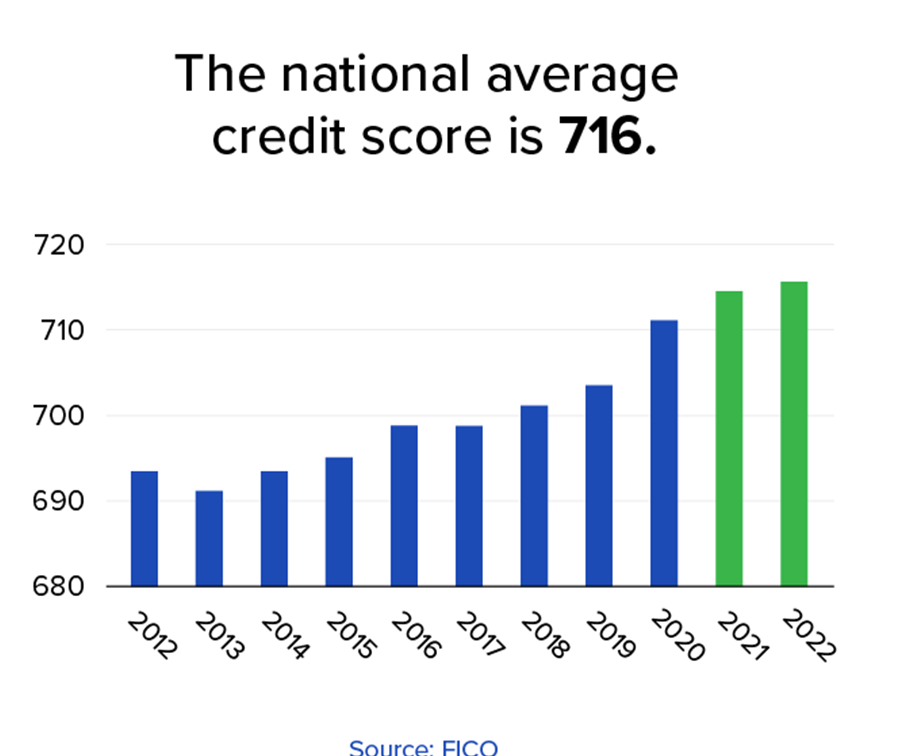Table of Contents
What is a credit score?
Hey there!! You must have heard the term credit score before when the elderly people around you were about to make a big purchases , and now you wanna know what a credit score actually means and what its significance is. Don’t worry, i got you ; )
Maintaining and improving your credit score is essential for achieving your financial goals and accessing favorable terms and rates. In this blog post, we’ll explore effective strategies to help you master your credit score and know everything you need to know to get started.

So, What really is credit score?
A credit score is a three-digit number that rates your worthiness of getting credit. Generally, the score ranges from 300 to 900. The higher the score, the more likely you are to get approved for loans. It is based on your credit history, like the number accounts, total levels of debt, repayment history, etc. Lenders use credit scores to evaluate your credit worthiness, or the likelihood that you will repay loans in a timely manner.
Check Your Credit Report Regularly
Regularly checking your credit report is crucial for maintaining your financial health. It helps you spot and correct any inaccuracies that could negatively impact your credit score. By keeping an eye on your credit report, you stay in control of your financial situation and improve your chances of securing loans when you need them.

Note that 80% of loans get easily approved if the CIBIL score is above 750.
Calculation of CIBIL score
There are 4 factors of CIBIL score calculation which includes:
- Payment History
- Existing loan and credit usage
- Type of Loan and their tenure
- Number of Credit inquiries
However, the first two parameters have the highest weightage while calculating a credit score.

Pay Bills on Time
Paying bills on time is crucial for maintaining a good credit score. Here’s why and how to stay organized! Your credit score reflects how well you manage credit. Timely payments show lenders you’re responsible, boosting your score. Late payments, on the other hand, it can drag your score down.

Oh well, we all have a habit of procrastinating our work every time but we have to change it! Don’t worry, here are some tips to pay bills on time.
Debunking Common Myths About Credit Scores
Credit scores can often seem like a mysterious number that dictates much of our financial lives. Let’s clear up some common myths to help you understand how credit really works:
Myth 1: Checking Your Credit Score Hurts It
Many people think that checking their own credit score will lower it. Thankfully, that’s just a myth. When you check your credit report, it’s considered a “soft inquiry,” which doesn’t affect your score. So, go ahead and keep an eye on your credit without fear!
Myth 2: Closing Old Accounts Will Improve Your Score
It might seem logical to close old credit card accounts you’re not using, but this can actually hurt your score. Credit history length matters, and older accounts contribute positively to it. Keep those old accounts open to maintain a longer credit history.
Myth 3: Carrying a Balance Boosts Your Credit Score
Some believe that carrying a balance on your credit card helps improve your score. In reality, it’s best to pay off your balance in full each month. Carrying a balance can lead to unnecessary interest charges and higher credit utilization, which can negatively impact your score.
Myth 4: You Only Have One Credit Score
There are actually multiple credit scores generated by different credit bureaus and scoring models. While they’re often similar, they can vary based on the information available to each bureau. It’s important to check your scores from different sources to get a complete picture.
Myth 5: Income Directly Affects Your Credit Score
Your income doesn’t directly influence your credit score. While having a higher income can make it easier to manage credit and avoid debt, credit scores are based on credit history, not how much money you make.
Myth 6: You Can’t Get a Good Score Without Debt
You don’t need to carry debt to have a good credit score. Responsible use of credit cards, paying bills on time, and maintaining a low credit utilization rate are key to building and maintaining a strong credit score.
Myth 7: Credit Counseling Will Ruin Your Credit
Seeking help from a credit counseling agency won’t ruin your credit. In fact, these agencies can help you manage debt and improve your credit score over time. Just ensure you choose a reputable organization.
Myth 8: All Debts Are Created Equal
Not all debts impact your credit score the same way. For example, a mortgage or student loan can be viewed more favorably than high credit card debt. It’s important to manage all debts responsibly, but understanding how different types of debt affect your score can be helpful.
By understanding and debunking these myths, you can take control of your credit with confidence and make informed financial decisions. Your credit score is a powerful tool—use it wisely!
Paying bills on time is more than just avoiding late fees—it’s about maintaining a healthy credit score. By staying organized and proactive, you can build a solid credit history and avoid the pitfalls of late payments. It’s your ticket to financial stability and future opportunities.

FAQs
1. What is a good credit score?
A good credit score typically falls between 670 and 739. It’s like having a solid B+ on your financial report card, signaling to lenders that you’re a reliable borrower.
2. What is the meaning of a credit score?
A credit score is a three-digit number that reflects your creditworthiness. It’s a quick way for lenders to gauge how likely you are to repay your debts on time, based on your credit history.
3. Which credit score is best?
A credit score of 800 or above is considered excellent. It’s like getting an A+ in personal finance, giving you access to the best interest rates and loan terms.
4. How do I know my credit score?
You can find out your credit score through various methods: checking your credit card statements, using free online services, or requesting it directly from credit bureaus.
5. How can I calculate my credit score?
You can’t calculate your credit score manually, as it’s determined by complex algorithms used by credit bureaus. However, you can get an estimate by considering factors like your payment history, credit utilization, and length of credit history.
6. Can my bank give me my credit score?
Yes, many banks offer free credit scores to their customers as a perk. Check your online banking portal or talk to your bank’s customer service to see if this service is available.
7. How to get a credit score for free?
You can obtain your credit score for free through various online platforms, such as Credit Karma or AnnualCreditReport.com. These services provide access to your score without any cost.
8. How to raise your credit score?
Raising your credit score involves a few key steps: pay your bills on time, reduce your credit card balances, avoid opening too many new accounts, and regularly check your credit report for errors.
9. Which credit score is used by banks?
Most banks use the FICO score when evaluating credit applications. It’s the most widely recognized and utilized credit score model in the lending industry.

Latest episodes
Leave a Reply